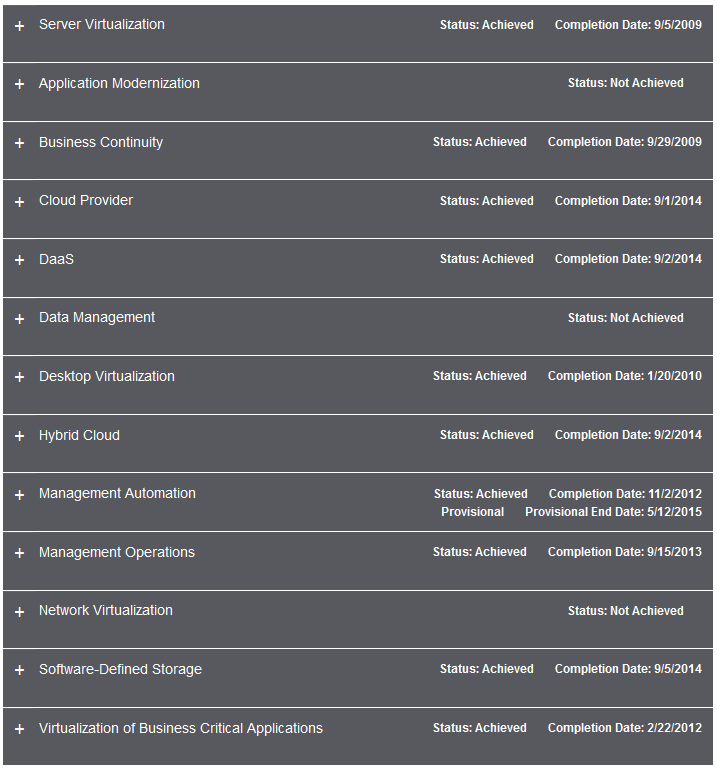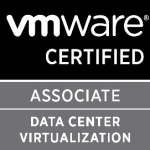This post is also available in: Italian
Reading Time: 4 minutesVMware’s technical certifications are almost simple and clear: actually there are four paths (Data Center Virtualization, Cloud, End User Computing, Network Virtualization) and for each four different levels (Associate, Professional, Advanced Professional or Implementation Expert, Design Expert) like in a piramid (with the first level optional, as discussed in a previous post).
There is also a specific path for Cloud Application Platform (related to developer for the Spring framework), but actually could be considered as something apart and also is not included in the official VMware Certification Roadmap.
On the partner side some of those individual certifications could be useful for gaining specific VMware partner competencies, but there isn’t a complete 1:1 mapping between certifications and competencies.
![]() Actually VMware has re-defined (starting from 2014) the following partner competencies:
Actually VMware has re-defined (starting from 2014) the following partner competencies:
- Server Virtualization (for the vSphere suite)
- Business Continuity (for SRM, but also the generic BC concepts)
- Cloud Provider (for Public Cloud Provider)
- DaaS (for Desktop as a Service offer)
- Desktop Virtualization (for VDI and VMware Horizon implementations)
- Hybrid Cloud (for the vCloud Air offer)
- Management Automation (mainly based around vCAC)
- Management Operations (mainly based around vCOPS)
- Network Virtualization (for NSX)
- Software-Defined Storage (for Virtual SAN)
- Virtualization of Business Critical Applications (for Exchange, SQL Server, Sharepoint, Oracle, … implementation in a virtual environment)
Cloud IaaS (for vCloud Director and removed from 2014)
There are also the Application Modernization and Data Management competencies, but actually all the exams are already been moved in the Pivotal portal, so probably also the competencies will be soon moved in a related area.
Each of this competency is strictly related to one (or more) VMware products (or services) but not necessary with some certifications. Each VMware partner can have one or more competencies, like in this case:
You can use VMware Partner Locator to find a partner and check the related competencies.
Each competencies usually mean at least one or more VSP (VMware Sales Professional), one or more VTSP (VMware Technical Pre-Sales Professional) and one or more Technical Post-Sales Accreditation (there are some exceptions for some competencies with different requirements).
Obtain VSP and VTSP accreditation is usually simple: one ore more on-line course and exams (all free for partners) or, in some cases, attend a bootcamp (usually organized by distributors). More complicated the post-sales part: in some cases VCP or VCAP certifications could be used, in other will be necessary attend to mandatory courses (with a fee).
As you can notice the missing 1:1 ratio with technical certification make not possible apply a VCP or VCAP cert (note that VCDX certifications are not considered for VMware competencies!). For example for the business contiuity competencies an SRM course is the only way to satify the post-sales requirement (because there isn’t a specific certification path for BC).
Until 2014 there was also another requirement of a customer reference (at least one for each competency), but this year seems been suppressed. The number of required VSP, VTSP and post-sales still vary by the type of partnership.
Also note that starting from 2014 the management competencies has been splitted in two different competencies: one for operations (like the previous management competency) and one specific for automation (addressed on the vCAC product).





